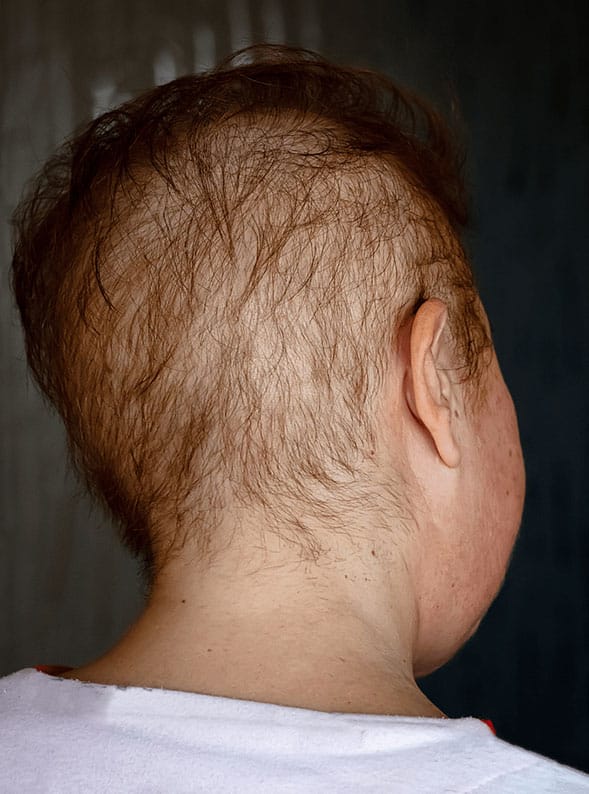Hair Conditions
Telogen Effluvium / Anagen Effluvium
How and Why Hair and Scalp issues have a wide reaching effect
Hair is seen as a defining feature for both Men and Women, often referred to as your “crowning glory”. It is therefore hardly surprising that when there is a problem with the hair that it has a wide reaching effect from mild concern to anxious, depressive disorders in those who suffer.

Telogen Effluvium
Condition
Telogen effluvium is excessive hair shedding, leaving the hair feeling finer with a loss of density. Clients usually notice excess hair shedding when brushing or washing their hair, leading them reluctant to do either. The good news is that this type of hair loss does not cause scarring and can be easily treated.
Cause
Quick onset or acute telogen effluvium has a number of causative factors, such as post pregnancy, short-term illness, severe infection, post operative stress and/or emotional stress. Sudden changes in diet, such as ‘crash dieting’ can be one of the most common causes of acute telogen effluvium.
Chronic or ongoing telogen effluvium is usually caused by an underlying medical condition or as a result of the use of long-term medication.
Treatment
The first step in treating any hair loss condition is an accurate and timely diagnosis. From there an effective plan can be formed to achieve a satisfactory outcome. In both cases of acute and chronic telogen effluvium it is essential to have a consultation to identify all of the causative factors and to develop a treatment plan that will address all of the issues to ensure the best possible outcome in both the immediate and long term.
Where and if necessary, Eva can refer patients for relevant blood tests to confirm a diagnosis. With the correct treatment plan in place, telogen effluvium can usually be resolved in a relative short period, although ongoing changes may need to be made to prevent a recurrence.

Anagen Effluvium
Condition
Anagen effluvium is widespread hair loss that can affect a person’s scalp, face and body.
Cause
One of the most common causes of this type of hair loss is as a result of chemotherapy from cancer treatment. But other cancer treatments, including immunotherapy and radiotherapy, may also cause hair loss.
The hair loss is usually noticeable within a few weeks of starting treatment. However, not all chemotherapy drugs cause hair loss and sometimes the hair loss is so small it’s hardly noticeable.
Treatment
It may be possible to reduce hair loss from chemotherapy by wearing a special cap that keeps the scalp cool otherwise known as a ‘cold cap’. However, scalp cooling is not always effective and not always widely available.
In most cases, anagen effluvium hair loss is temporary. The hair should start to grow back a few months after chemotherapy has stopped.
